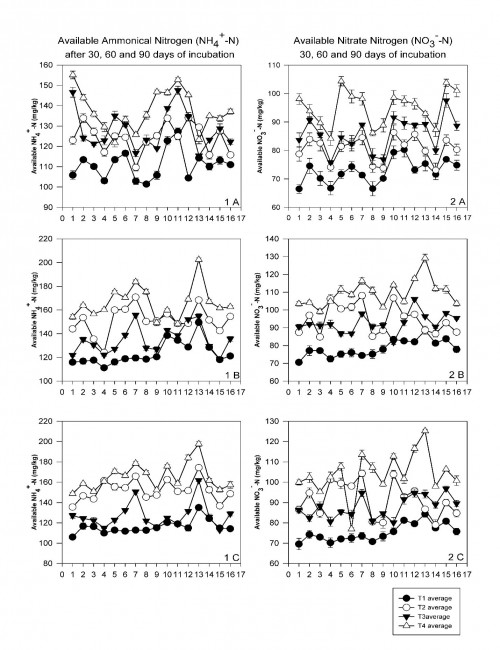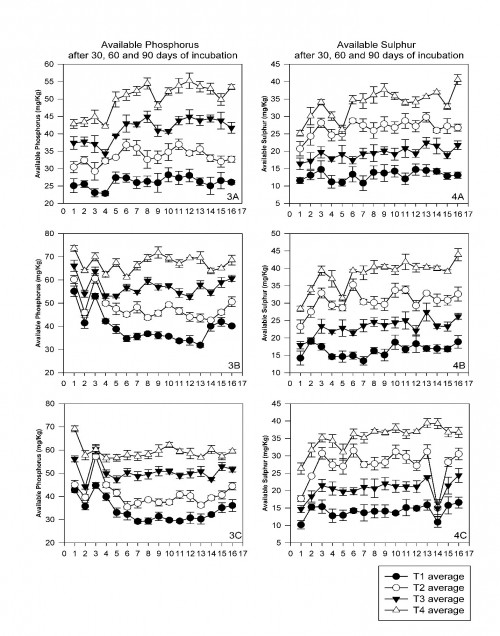Vol. 7, Issue 1 (2019)
Transformation of some major nutrients in tea garden soils of North Bengal
Author(s): Khanda A, Choudhary NB, Barman U, Mukherjee P, Pandey CS and Mukhopadhayay PK
Abstract: The intensity of land uses increase without passable and unprejudiced apply of chemical fertilizers and with less or no use of organic manure have caused severe decrease in fertility status of tea garden soils. Sixteen soil samples (0-30cm) from four farmers’ field (Small tea garden) located at Malabari village, in Naxalbari block under Darjeeling district of West Bengal were collected. Most of the soils were acidic in reaction and the pH ranged from 5.19 - 6.30. Oxidizable organic carbon was found to vary from 0.61%-1.24%. Lime requirement of the soils were estimated by SMP buffer method and found to be varying between 1.9 to 4.2 ton/acre. The laboratory incubation study was conducted with application of lime, vermicompost and their combination. Vermicompost application in general showed higher availability of nitrogen and phosphorus than lime application. Effect of liming was found to be superior over the vermicompost application with respect to sulphur availability in different soils. Combined effect of lime and vermicompost on availability of nitrogen, phosphorus and sulphur were much higher than their individual application. Maximum benefit of availability of nitrogen, phosphorus and sulphur were recorded on 60th day of incubation followed by 90th day and minimal availability at 30th day of incubation.

Fig. 1: Available Ammonical (NH4+-N) and Nitrate (NO3—N) Nitrogencontent after 30, 60 and 90 days incubation

Fig. 2: Available Phosphorus and Sulphur content after 30, 60 and 90 days incubation
Pages: 74-79 | 773 Views 82 Downloads
download (11698KB)
How to cite this article:
Khanda A, Choudhary NB, Barman U, Mukherjee P, Pandey CS, Mukhopadhayay PK. Transformation of some major nutrients in tea garden soils of North Bengal. Int J Chem Stud 2019;7(1):74-79.






